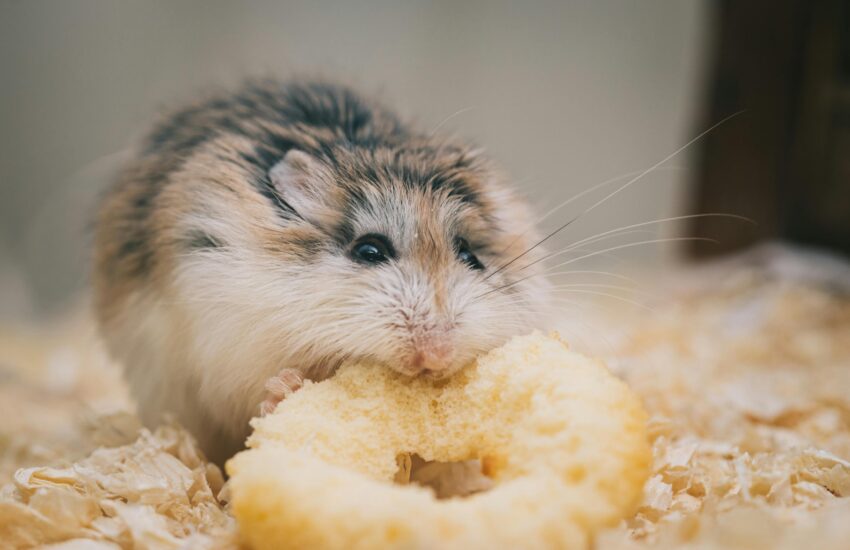Fun Hamster Facts
Discovering the World of Hamsters
Hamsters are small, adorable creatures that have captured the hearts of pet enthusiasts around the globe. They belong to the rodent family and are known for their playful nature and quaint habits. These critters come in various breeds, each possessing distinct personalities and characteristics. If you’re considering a small pet or just love learning about animals, here are some entertaining and surprising **hamster facts** that will delight any hamster lover.

Types of Hamsters
There are over 18 species of hamsters, but the most popular types kept as pets are the Syrian hamster, the dwarf hamsters (like the Campbell’s dwarf hamster and the Roborovski hamster), and the Chinese hamster. The **Syrian hamster**, often called the “golden hamster,” is the largest and typically lives alone due to its territorial nature. On the other hand, **dwarf hamsters** are smaller and can often cohabit if introduced correctly. This is a fascinating aspect of their behavior, showcasing the diversity within the species.
Unique Characteristics
One of the most interesting facts about hamsters is their cheek pouches. These special pouches allow them to store food and carry it back to their burrows. A hamster can pack its cheeks with food almost double its head size! This ability helps them to forage and ensures that they can have a food supply stored away for later. Additionally, hamsters are nocturnal creatures, meaning they are most active during the night, which aligns with their natural behavior in the wild.
Hamster Habitats and Care
Creating a suitable habitat for your hamster is crucial for their health and happiness. A proper **hamster cage** should provide ample space for exercise, climbing, and hiding. Accessories like tunnels, wheels, and chew toys are not just for entertainment—they promote mental stimulation and physical health. Different species have specific needs; for example, Syrian hamsters require larger cages, while dwarf hamsters can thrive in slightly smaller environments. Proper bedding, like aspen shavings or paper bedding, should be used to keep the cage clean and comfortable.
Feeding Your Hamster
Feeding your furry friend balanced nutrition is key. A typical diet should consist of high-quality hamster pellets, fresh vegetables, and occasional treats. It’s essential to avoid feeding them citrus fruits or excessive sugary snacks, as these can upset their digestive systems. Knowing what to feed your hamster can enhance their **lifespan** and general well-being. Fresh water should always be available, and it’s crucial to change it daily to keep your pet healthy.
Hamster Behaviour: Understanding Their Nature
Hamsters are naturally curious and have playful personalities. They enjoy exploring their environment, making it essential to provide toys and obstacles within their cage. You may notice your hamster burrowing through bedding or running on a wheel; these behaviors are normal and healthy. Socialization is also key, especially for dwarf hamsters, which may prefer the company of their kind. Understanding your hamster’s body language can help you bond with them and meet their needs better.
The Joy of Hamster Ownership
Owning a hamster can be a rewarding experience filled with endless joy and amusement. These pocket-sized pets are often less demanding than larger animals, making them an excellent choice for families and individuals alike. Spending time with your hamster can strengthen the bond between pet and owner, creating cherished memories. Regular interactions and observations can help you understand their quirky behaviors and personalities even better.
Training Your Hamster
While hamsters are not as easily trainable as dogs or cats, they can learn simple tricks, such as coming out of their cage or responding to their name. Frequent handling helps develop trust, and rewarding your hamster with treats can encourage good behavior. Training also provides mental stimulation, important for preventing boredom in your pet. Keep sessions short and fun to maintain your hamster’s interest and affection.
Health and Well-being
Like any pet, hamsters can be susceptible to health issues. Common problems include wet tail, respiratory infections, and obesity. Regular vet check-ups are essential, and being aware of your hamster’s normal behavior can help identify health concerns early. Maintaining a clean living environment and a well-balanced diet contributes significantly to their overall health, allowing your hamster to lead a long and happy life.
Key Takeaways
Hamsters are fun-loving pets that can bring joy and companionship. Here are a few key points to remember:
- Different breeds of hamsters have unique characteristics and care requirements.
- Providing a stimulating environment is essential for their mental and physical health.
- Regular interaction can enhance your bond with your hamster.
- Monitoring their health ensures long lifespans and quality of life.
FAQ
1. What is the average lifespan of a hamster?
On average, hamsters live about 2 to 3 years, though some dwarf species may live slightly longer, typically up to 4 years with proper care. Factors influencing their lifespan include diet, habitat conditions, and genetics.
2. Can hamsters live together?
Some species, especially dwarf hamsters, can live together in pairs or small groups if introduced correctly. However, Syrian hamsters are solitary and should not be housed together to prevent territorial disputes.
3. How often should I clean my hamster’s cage?
To keep your hamster healthy, it’s recommended to clean the cage at least once a week. Spot cleaning daily by removing soiled bedding and uneaten food can maintain a clean and safe environment.
4. What do hamsters love to play with?
Hamsters enjoy various toys, including tunnels, climbing structures, and chew items. Silence wheels are also popular for exercise. Providing engaging toys can prevent boredom and promote mental stimulation.
5. How can I tell if my hamster is sick?
Signs of illness in hamsters can include lethargy, changes in appetite, diarrhea, or unusual vocalizations. If you notice any of these symptoms, it’s essential to consult a veterinarian for advice and treatment.
